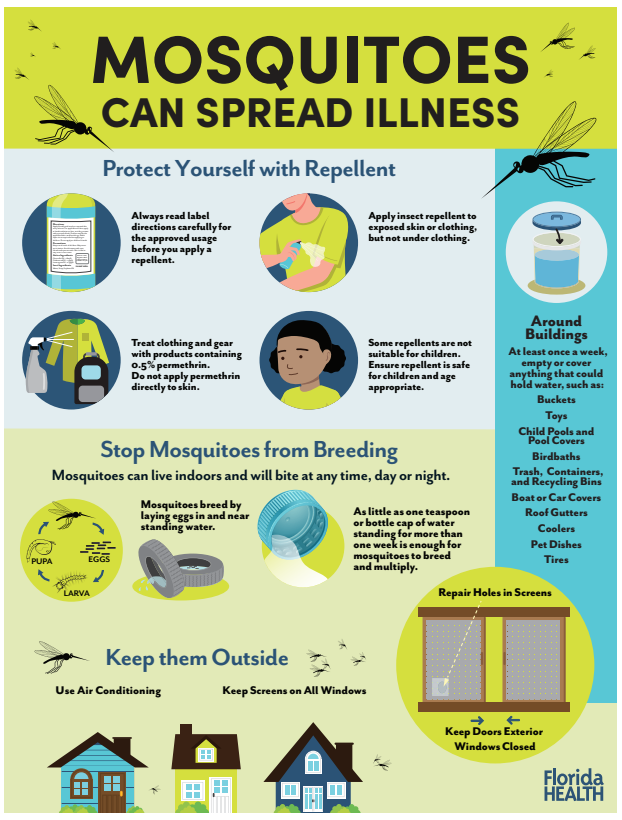In a follow-up on the dengue fever situation in the state of Florida, state health officials report an additional indigenous case in Miami-Dade County this past week.
This is the second locally transmitted dengue case in Florida and in Miami-Dade County. This most recent case was serotyped as DENV-4.
In 2024, 91 cases of locally acquired dengue have been reported from ten counties- Broward (2), Hillsborough (7), Manatee (9), Miami-Dade (50), Monroe (3), Orange (2), Palm Beach (3), Pasco (13), Polk (1), and Sarasota (1).
In addition, 98 travel-associated dengue cases have been reported in Florida this year.
Dengue infection is acquired through the bite of certain species of mosquitoes, primarily Aedes aegypti, but also Aedes albopictus, both of which are present in Florida.
Dengue fever is an important mosquito-borne disease worldwide. It is caused by four related dengue viruses (DEN-1, DEN-2, DEN-3, DEN-4) that are related to the viruses that cause West Nile infection and yellow fever.
Dengue fever can be a painful, debilitating disease but is rarely fatal. Symptoms appear 3-14 days after the bite of an infected mosquito and include sudden onset of fever, severe headache, eye pain, muscle and joint pain (giving the disease the nickname "breakbone fever"), and bleeding. Gastrointestinal symptoms like vomiting and diarrhea may also be present in some cases. Dengue fever symptoms usually lasts 4-7 days. The disease is often diagnosed incorrectly because the symptoms are similar to influenza and other viruses.
Dengue hemorrhagic fever is a rare but more severe form of dengue infection that can be fatal if not recognized and treated with supportive care. The primary risk factor for hemorrhagic fever is previous infection with a different dengue serotype (i.e. getting DENV-2 if you have already DENV-1 puts you at increased risk of hemorrhagic fever).
There is no specific medicine to treat dengue. Dengue can be life threatening. Severe dengue requires hospitalization. A dengue vaccine, Dengvaxia (the only dengue vaccine currently available in the United States), can protect against future dengue illness, hospitalization, and severe disease.





